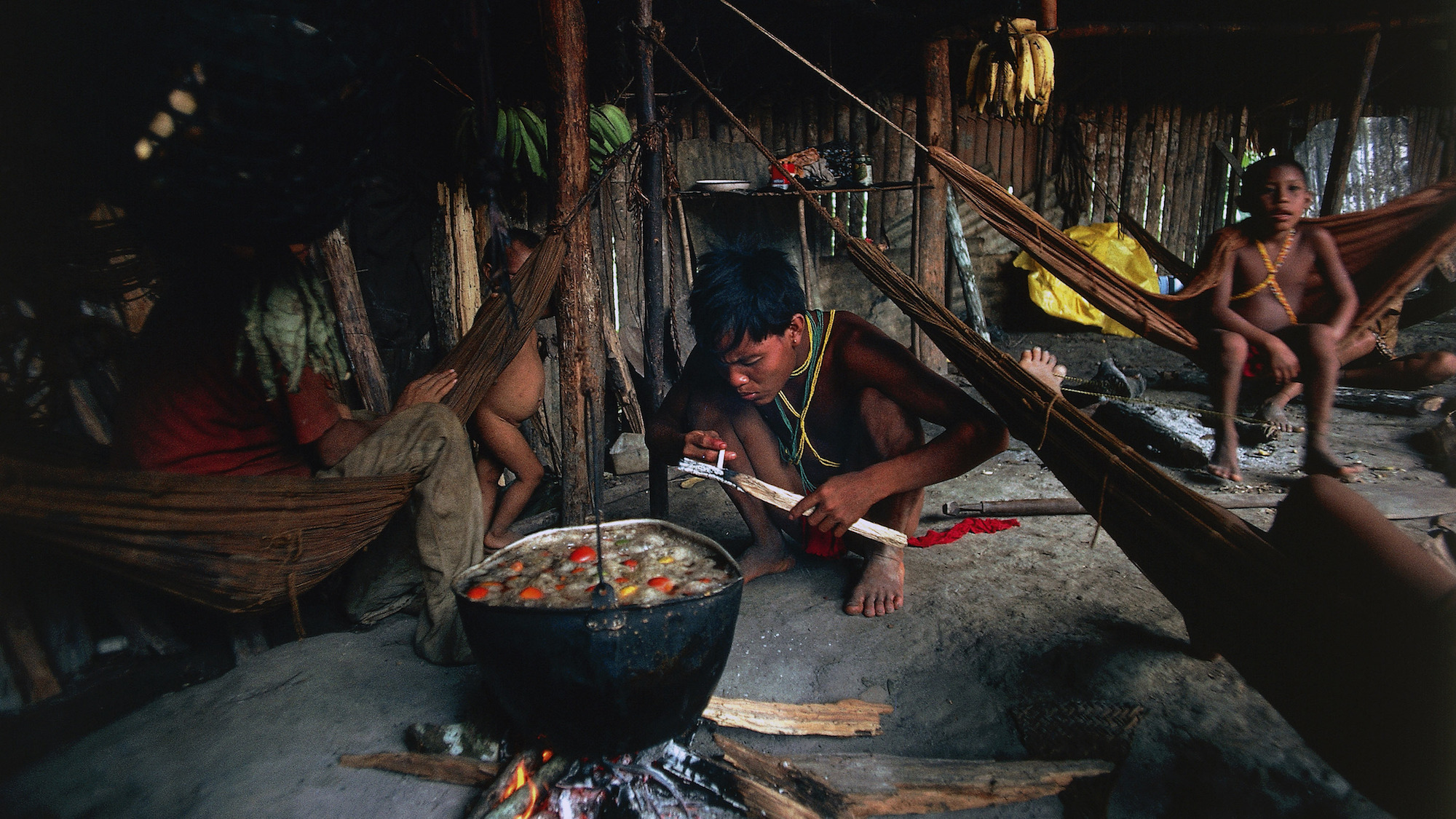Teenage boy's death is first COVID-19 fatality among remote Brazilian tribes
A teenager of the Yanomami people died of COVID-19 late last week.

The COVID-19 pandemic has claimed the lives of five indigenous people in the Brazilian Amazon, including that of a 15-year-old boy from a remote tribe, according to news sources.
The teenager died on April 9 at a hospital in Boa Vista, the capital of Brazil's Roraima state, according to The Independent.
The boy was the first member of the Yanomami indigenous people known to have died from the new coronavirus. No one knows for sure how he contracted the illness, but his community lives near the Uraricoera River in northern Brazil, where up to 10,000 illegal gold miners have set up camps, according to 2019 coverage by Survival International, an organization that defends indigenous rights worldwide.
Related: Coronavirus in the US: Latest COVID-19 news and case counts
The boy also had several other health problems, including malnutrition, anemia and repetitive malaria, according to a report from Sesai, the Indigenous Ministry of Health, but it's unknown if these issues can make a person more likely to die of COVID-19. However, the health system didn't see him when he initially tried to get care for flu-like symptoms, French anthropologist Bruce Albert told Amazônia Real, a Brazilian publication that covers indigenous issues.
Those who spent time with the teenager during his last days — including his parents, five indigenous health professionals, an airplane pilot and his local Helepi community of about 70 people — are now in isolation and monitoring their symptoms, according to Amazônia Real.
The boy's body was buried within an hour of his passing, the Yanomami Special Indigenous Sanitary District said, according to Amazônia Real.
Sign up for the Live Science daily newsletter now
Get the world’s most fascinating discoveries delivered straight to your inbox.
There are about 38,000 Yanomami (also spelled Yanomamö or Yanoamö) people in northern Brazil and southern Venezuela, according to Encyclopedia Britannica and Survival International. The Yanomami practice agriculture as well as hunting and gathering. While the teenage boy who died was a Yanomami, he was not "Moxihatetea," otherwise known as an uncontacted Yanomami individual.
The boy's case was "very worrying," said Luiz Henrique Mandetta, Brazil’s health minister, according to The Independent. "We have to be triply cautious with [indigenous] communities, especially the ones that have very little contact with the outside world"
In all, Brazil has about 850,000 indigenous people, according to The Independent. These individuals are vulnerable to outside disease, and their lifestyles in tribal villages makes social distancing challenging to practice.
The first indigenous person to test positive for COVID-19 in Brazil learned about her diagnosis in late March, Live Science previously reported. Those who have died include an elderly man of the Tikuna people and a woman of Kokama ethnicity, as well as an elderly Borari woman and a middle-aged Mura man, both of whom lived in the city and are not considered villagers, Amazônia Real reported April 12.
As of April 14, more than 23,900 people in Brazil had tested positive for COVID-19, and 1,361 people are known to have died of the disease, according to worldometers.info. However, the number of cases is likely 12 times higher, according to a study by academics in Brazil, the Mercury News reported. President Jair Bolsonaro has downplayed the risk the virus poses, urging the country to get back on its feet, economically speaking, as soon as possible.
- The 9 deadliest viruses on Earth
- 27 devastating infectious diseases
- 11 (sometimes) deadly diseases that hopped across species
Originally published on Live Science.
OFFER: Save 45% on 'How It Works' 'All About Space' and 'All About History'!
For a limited time, you can take out a digital subscription to any of our best-selling science magazines for just $2.38 per month, or 45% off the standard price for the first three months.

Laura is the archaeology and Life's Little Mysteries editor at Live Science. She also reports on general science, including paleontology. Her work has appeared in The New York Times, Scholastic, Popular Science and Spectrum, a site on autism research. She has won multiple awards from the Society of Professional Journalists and the Washington Newspaper Publishers Association for her reporting at a weekly newspaper near Seattle. Laura holds a bachelor's degree in English literature and psychology from Washington University in St. Louis and a master's degree in science writing from NYU.










